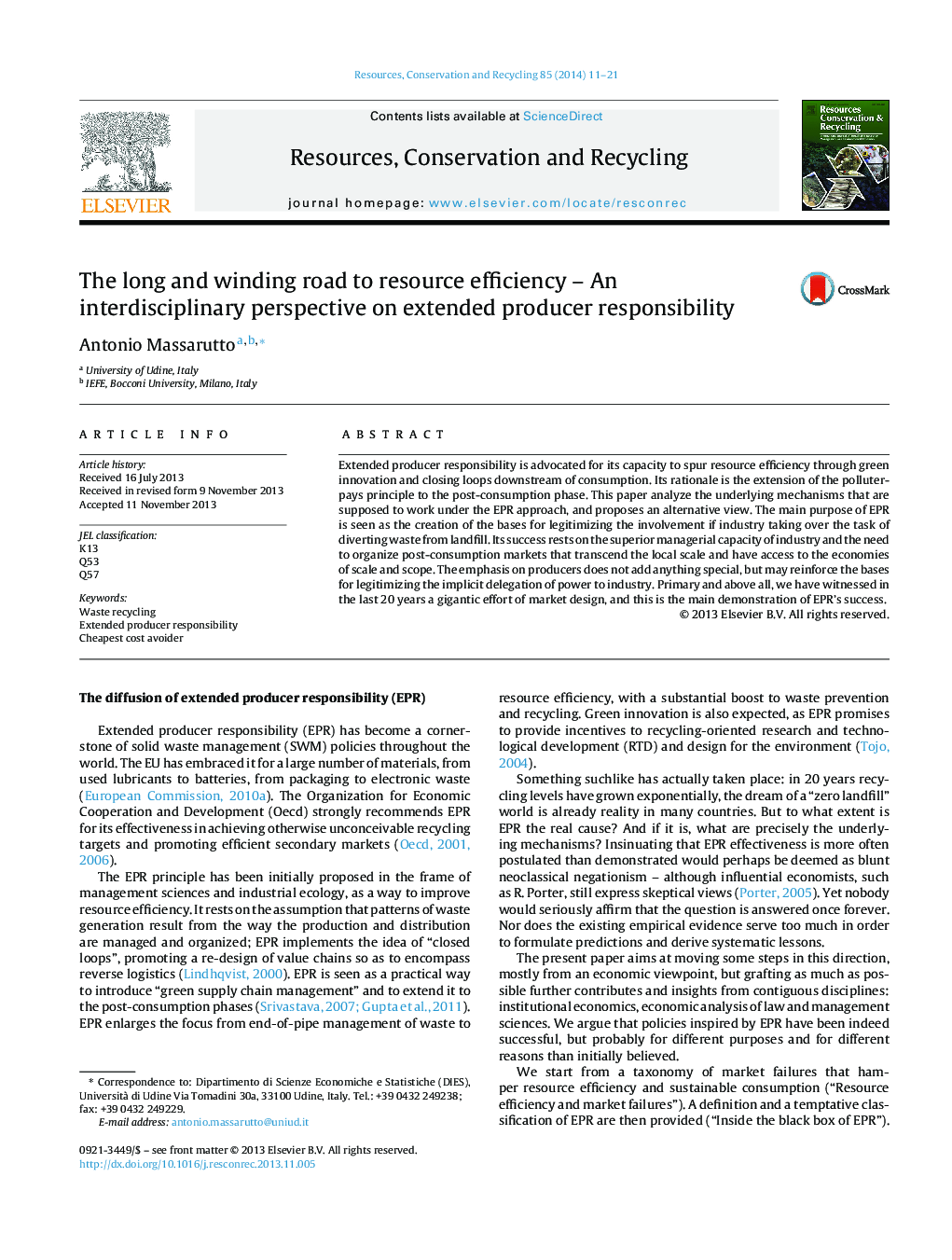| Article ID | Journal | Published Year | Pages | File Type |
|---|---|---|---|---|
| 1062957 | Resources, Conservation and Recycling | 2014 | 11 Pages |
Extended producer responsibility is advocated for its capacity to spur resource efficiency through green innovation and closing loops downstream of consumption. Its rationale is the extension of the polluter-pays principle to the post-consumption phase. This paper analyze the underlying mechanisms that are supposed to work under the EPR approach, and proposes an alternative view. The main purpose of EPR is seen as the creation of the bases for legitimizing the involvement if industry taking over the task of diverting waste from landfill. Its success rests on the superior managerial capacity of industry and the need to organize post-consumption markets that transcend the local scale and have access to the economies of scale and scope. The emphasis on producers does not add anything special, but may reinforce the bases for legitimizing the implicit delegation of power to industry. Primary and above all, we have witnessed in the last 20 years a gigantic effort of market design, and this is the main demonstration of EPR's success.
